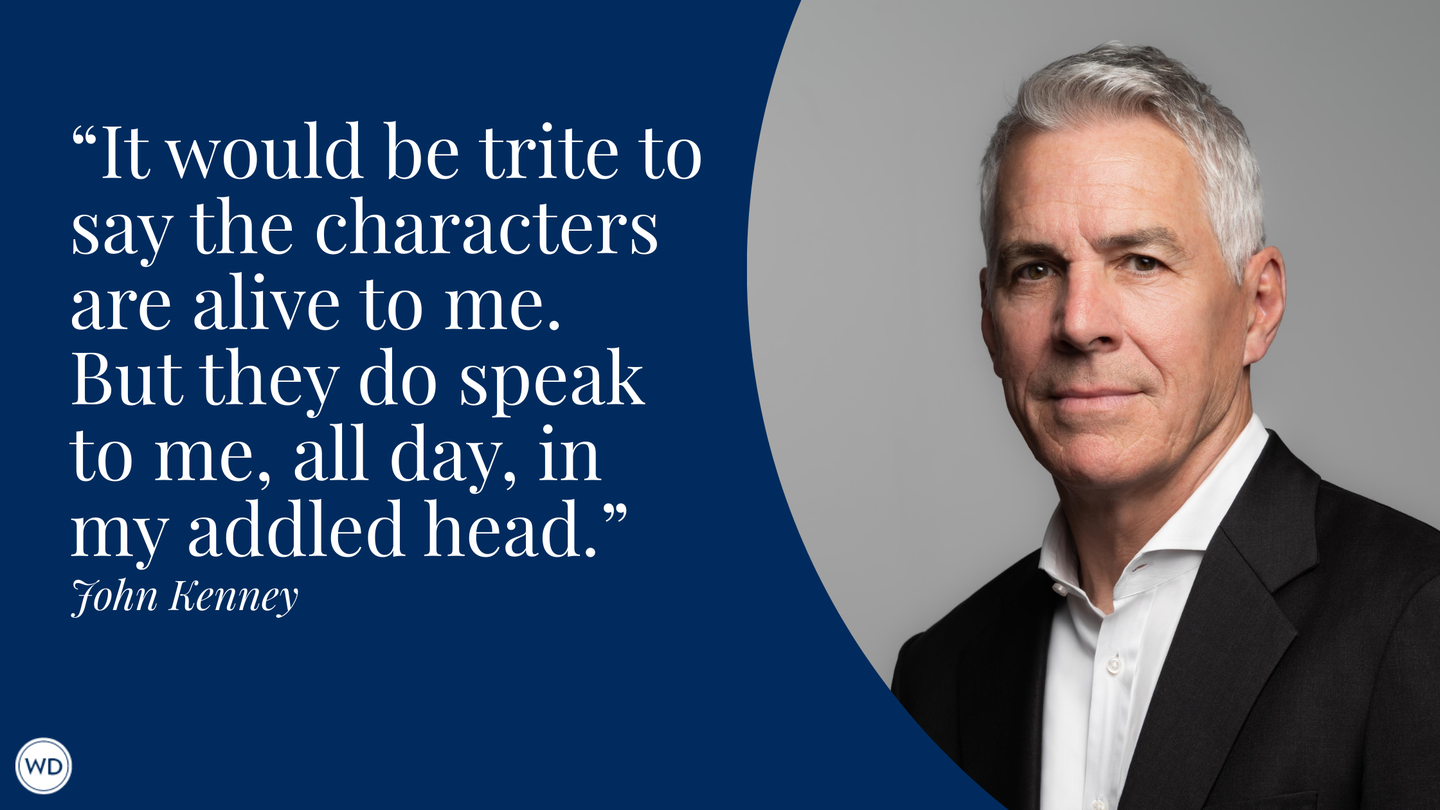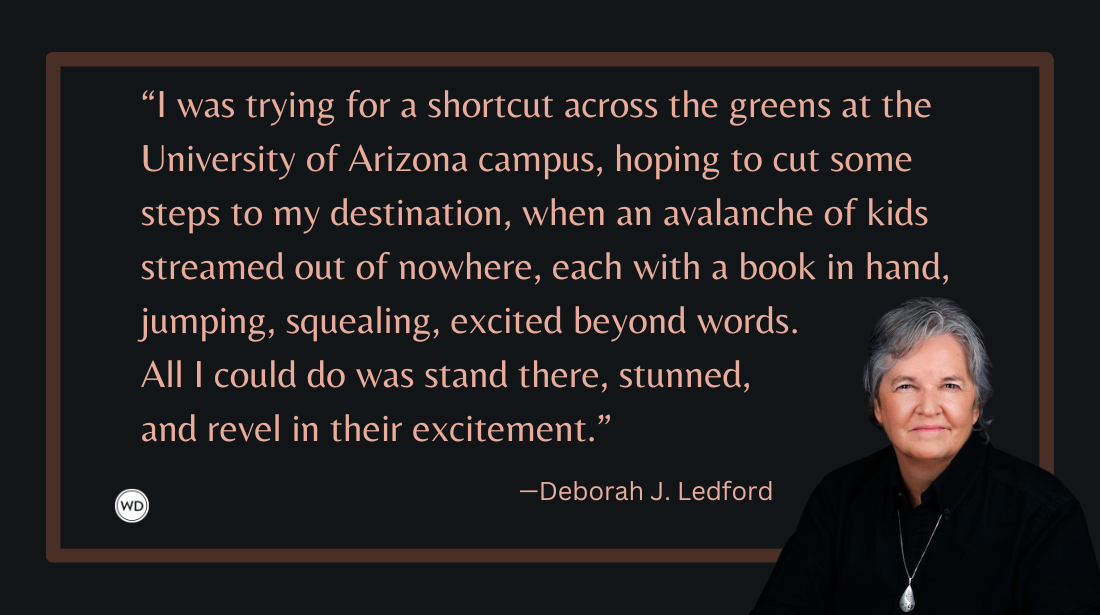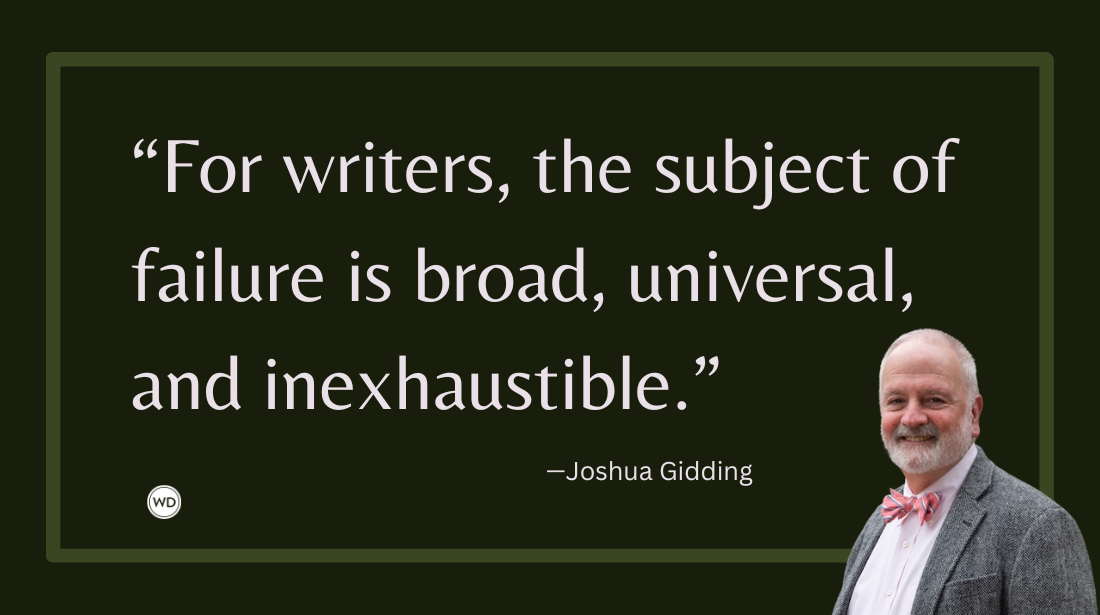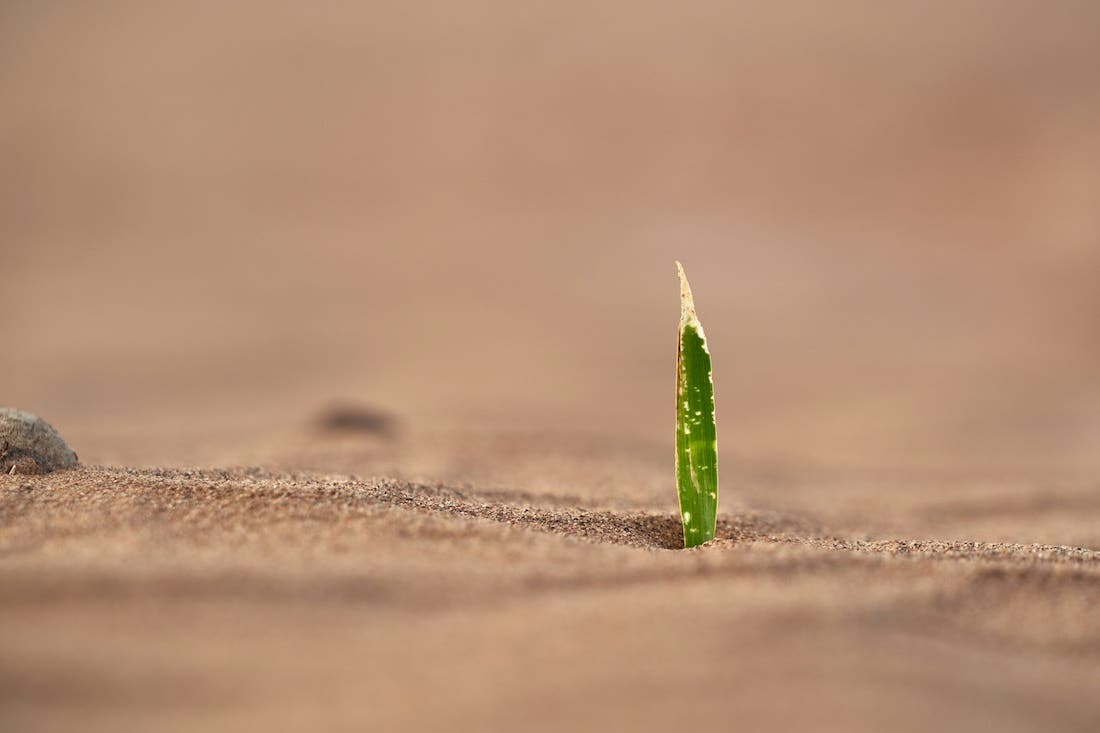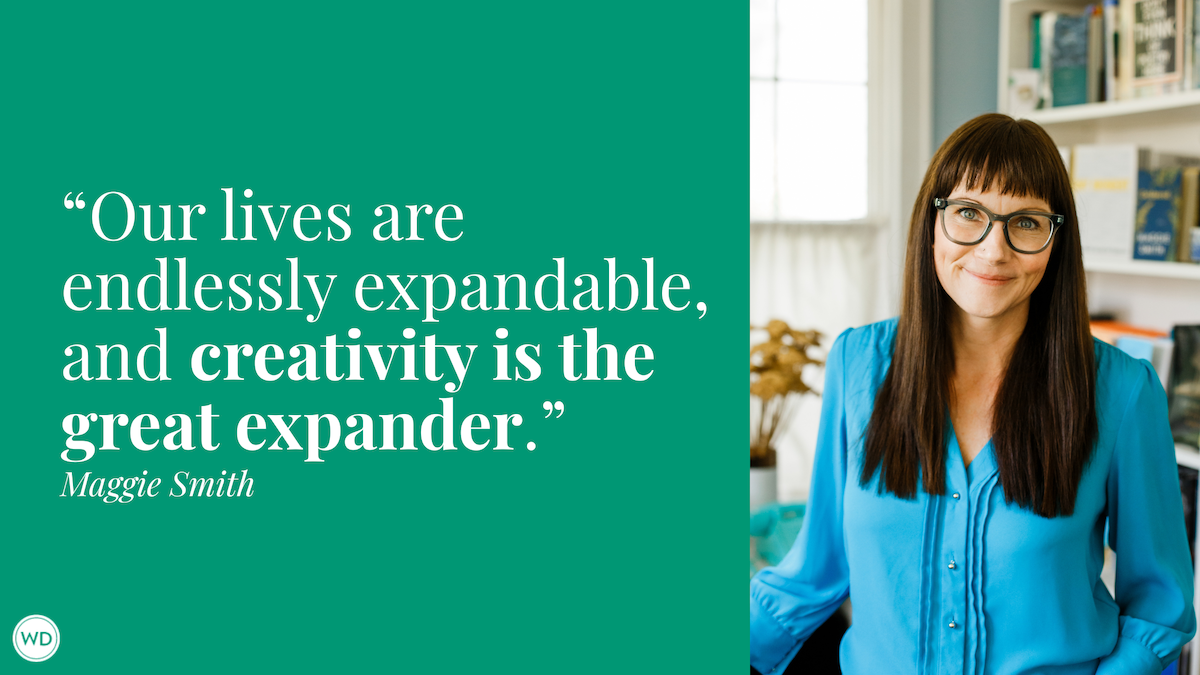How to Write Through Grief and Find Creativity
When author Diana Giovinazzo found herself caught in the storm of grief, doing what she loved felt insurmountable. Here, she shares how she worked through her grief to find her creativity again.
I write this in the middle of a café just before Christmas watching the patrons around me. The woman at the table next to me, who tenderly pours sugar into the iced tea. Her glass clinks against the ice as she talks to her ageing father about their holiday plans. The young man at the table in front of me, his black hair poking out in curls beneath his thick woolen beanie, who taps his feet in a Fred Astaire rhythm as his eyes roam the restaurant, ignoring his girlfriend. All the while my grief is sitting in the chair opposite me, begging to be acknowledged, like an imaginary friend from childhood.
As writers, we are expected to reflect on the world as we see it and turn it into art, but when you are dealing with grief, that transformation stalls. I wish there was some magical formula that would cause the grief to disappear, but the truth is, it will wait. A beloved song triggers a memory while you are in the middle of a grocery store. Reaching for the phone to call or text them, only to remember that you can’t, or simply while doing the dishes. It’s important to not only acknowledge the memories but to analyze our feelings at that moment.
Shortly after the death of my best friend of 20 years, I bought a journal with the intent to start a journal. I say intent because it sat on my desk. The pretty white flowers that burst on their branches stretching across the blue cover taunted me. For the first time in my life, I was afraid to write.
That’s when I learned my first lesson: I needed to be kind to myself. Writing has always been my saving grace, a way for me to make sense of this usually weird—and sometimes cruel—world. After I finished my copy edits, I informed everyone—from my publisher to my family—that I was taking a sabbatical. In that month I read, went on vacation, and spent time with loved ones. I can’t say that it was all blissful, there was an incident where I was crying into my fresh poke in Hawaii. By the end of the month, I could feel myself wanting to write again. That’s when I picked up that journal and learned my next lesson: Sometimes you need to keep some art for yourself.
IndieBound | Bookshop | Amazon
[WD uses affiliate links.]
I’m not going to lie: The journal wasn’t pretty. It was a mixture of thoughts, emotions, and scribbles as I tried to get my sentiments on the page. I devoted a whole page to playing with tenses just to find the one that fit the best on how to describe my best friend no longer being with alive. (Spoiler: None of them worked.)
The magic of it was that I could be as sloppy in my creativity as I wanted because it will never see the light of day. As writers, especially after we have been published, we get so focused on perfection and having art that is intended for the world to see. We forget that we are creative beasts that need, from time to time, to hold something back for ourselves. Something that you have no intention of sharing with anyone. Whether it is a secret novel, a journal, or a painting. Whatever works for your to be able to scratch that creative itch. When it comes to that inevitable burnout following personal tragedy, we need to get selfish with ourselves and do the things that feed our souls. Eventually, that drive comes back in spurts, your daily word count may be half of what it once was but it’s there.
My best friend was diagnosed with cancer in the fall of 2019, I started writing Antoinette’s Sister the following March. Looking back, my book is wrapped in grief. Every sentence steeped in the powerlessness I felt from not being able to do much to help. It turned out my little imaginary friend was there all along, waiting to be acknowledged.
Diana Giovinazzo is the co-creator of Wine, Women and Words, a weekly literary podcast featuring interviews with authors over a glass of wine. Diana is active within her local literary community as the president of the Los Angeles chapter of the Women's National Book Association. For more information, please visit her website, dianagiovinazzo.com.


